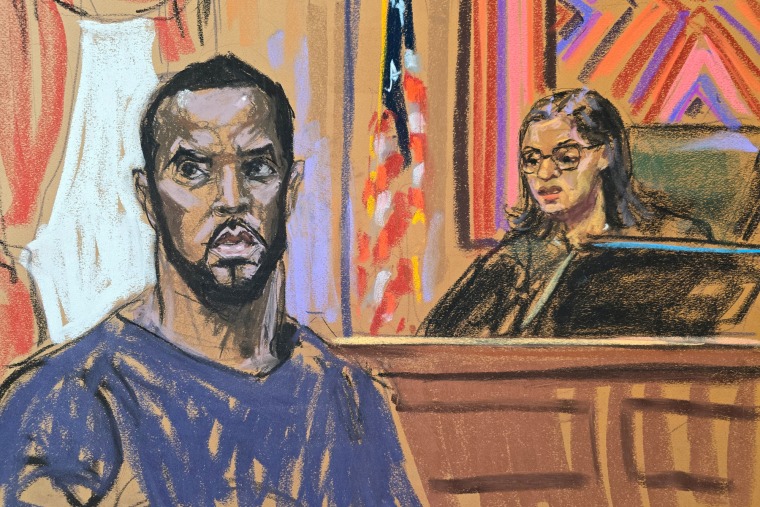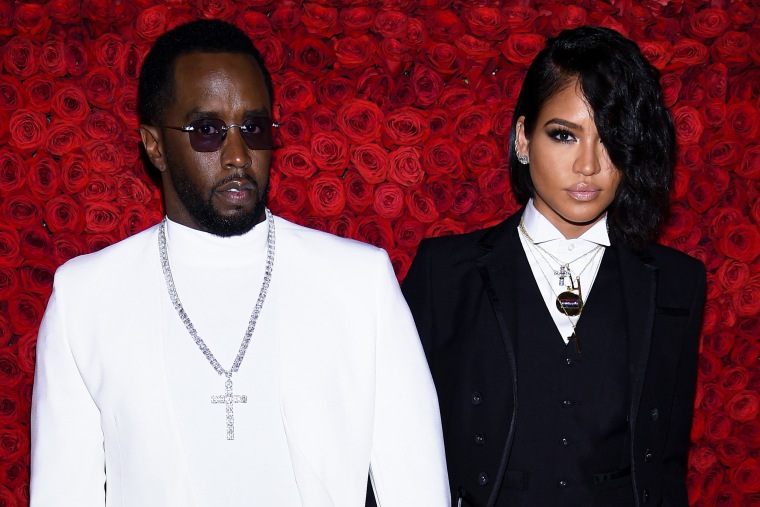When music mogul Sean “Diddy” Combs was arraigned Tuesday on three federal felony charges, including a wide-ranging racketeering conspiracy dating back to “at least” 2009, the first question I was asked was, “What took so long?”
The question that remains on my mind is perhaps even more cynical: Why should we expect prosecutors to get this one right? After all, Jeffrey Epstein and Harvey Weinstein — like Combs — were prosecuted in New York, and their sex crimes prosecutions experienced critical delays and derailments.
In Epstein’s case, he was not indicted in New York until 2019, more than a decade after reaching a secret, sweetheart deal in Florida that allowed him to resume his pattern of rape and sexual abuse of minors before his arrest. He died by suicide in jail while awaiting trial in 2019. As for Weinstein, his conviction was overturned last April by New York’s highest court, which held Weinstein’s constitutional rights were violated, among other reasons, by the testimony of women whose accusations against him were not part of the charges he faced. Weinstein, who has repeatedly denied any wrongdoing, is expected to be arraigned again Wednesday on a new indictment with additional sex crime charges.
Barely 24 hours have passed since the Combs indictment was unsealed, but there are already indications that we should expect it to be handled differently.

For starters, by charging him with a racketeering conspiracy, prosecutors have put front and center that “Combs did not act alone,” as U.S. Attorney Damian Williams said plainly at a press conference announcing the charges on Tuesday. (Combs has pleaded not guilty to all the charges in the indictment.)
That was equally true of Epstein and Weinstein, each of whose alleged crimes were also facilitated and then concealed by a coterie of employees, publicists and friends.
But in Combs’ case, unlike in those cases, the feds have expressly alleged a conspiracy with the apparent goal of enticing Combs’ alleged co-conspirators — “security staff, household staff, personal assistants, and high-ranking supervisors” of his companies — to avoid their own criminal liability.
Second, the breadth and volume of the evidence in the Combs case, as disclosed by prosecutors to date, goes far beyond what we typically see in sex crimes prosecutions. Through a letter prosecutors sent on Tuesday arguing that Combs should not be released on bail as he awaits trial, we’ve learned that in addition to interviews of 50 victims and witnesses, as well as the devices seized in connection with Combs’ arrest, prosecutors now have:
- “90 cellphones, laptops, and cloud storage accounts;”
- “30 other electronic and storage devices, such as hard drive, thumb drives, cameras and a surveillance system,” through which prosecutors confirmed in court on Tuesday that they have images and videos of various “Freak Offs,” the elaborately choreographed and sometimes recorded sex performances for which Combs allegedly lured and trafficked more than one victim;
- 3 AR-15s with defaced serial numbers, two of which were found in his bedroom closet, and 6 additional lawfully-obtained guns; and
- Documentary evidence obtained through 300 grand jury subpoenas, including materials from “over 100 entities and individuals, including communications providers; tech companies; social media companies; banks and other financial institutions; airlines, hotels, car services, and other travel-related companies; escort services; and even the defendant’s companies and wealth management firm.”
But perhaps most of all, what makes the Combs case different is that prosecutors appear to have taken their lead from one of his victims, whose detailed accusations of abuse and manipulation by Combs are echoed by the indictment. Specifically, last November, Combs’ former girlfriend Casandra Ventura — best known by her stage name, Cassie — filed a 35-page civil lawsuit against him in the same Manhattan federal court where he now faces charges, seeking compensatory and punitive damages for the sex trafficking, sexual harassment, sexual battery and other gender-based violence she allegedly experienced at his hands. Combs settled with Ventura the next day, all while vigorously denying her claims.

Ventura does not appear by name anywhere in the indictment. But a comparison of Ventura’s lawsuit to prosecutors’ public filings suggests strongly that prosecutors found her and her narrative compelling. Consider:
- Ventura alleged Combs forced her “to engage in sex acts with male sex workers while masturbating and filming the encounters,” a key element of the “Freak Offs” detailed in the indictment.
- She also alleged Combs forced her to carry a gun and orchestrated the explosion of musician and actor Scott “Kid Cudi” Mescudi’s car after learning of Mescudi’s romantic interest in her. (Mescudi confirmed the latter story to the New York Times.) Both of those allegations were repeated in prosecutors’ detention letter; their depiction of the Mescudi car incident also suggests they have obtained others’ perspectives as well.
- Ventura alleged Combs inserted himself into her medical care, having her MRI results directly sent to his email. Again, those allegations are mimicked by the indictment’s assertion that Combs maintained control of his victims by monitoring their medical records.
- Ventura alleged that in 2009, Combs’ staff forcibly hid her in a hotel suite in Los Angeles for a week after he violently assaulted her, causing her to bleed profusely. So too does the indictment allege Combs’ unnamed co-conspirators concealed his abuse by squirreling away his victims in hotels or his residences “to recover from injuries COMBS inflicted, without being publicly observed.”
Cassie’s role in the investigation practically leaps off the indictment’s pages.
And the similarities don’t stop there; rather, they go on and on. The indictment’s allegation that Combs’ staff both prepared hotel rooms for and cleaned up after to mitigate the damage after the Freak Offs? Ventura said it first. The indictment’s list of the specific drugs Combs allegedly possessed and distributed? Each of the four controlled substances — cocaine, ecstasy, GHB and ketamine — Ventura alleges she was given “in excessive amounts” during the Freak Offs are included. The indictment’s vague allegation that Combs’ co-conspirators assisted him in “locating and contacting victims who attempted to flee his abuse”? It comes to life through Ventura’s complaint, which alleges that, after a particularly hideous incident of abuse in 2016, she fled to a friend’s Florida home, where the CEO of Combs’ record company “tracked Ms. Ventura down and told her that her single would not be released if she did not answer Mr. Combs’s phone calls.”
To date, Ventura’s lawyers have not responded to MSNBC and NBC News’ requests for comment on the indictment. But her role in the investigation practically leaps off the indictment’s pages. And that, in and of itself, might be what distinguishes the Combs case most of all.

Leave a Reply